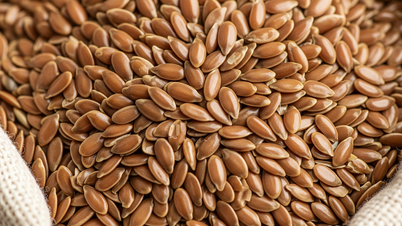In fact, the nut has received such great attention that scientists and industry experts have gathered annually for the past 50 years at the University of California, Davis, to hold a walnut conference to discuss the latest research on walnut health.
Walnuts are native to the Mediterranean region and Central Asia. They are rich in omega-3 fats and contain higher levels of antioxidants than most other foods. Walnuts may improve brain health and prevent heart disease and cancer.
Walnuts are known as the "king" of nuts (Photo: Istock).
100g of walnuts provide about 680kcal, 64.5g of fat, 14.6g of protein and 10.3g of carbohydrates. Although walnuts are high in fat, they contain many healthy fats such as omega-3, especially alpha-linolenic acid (ALA), which accounts for about 13% of total fat.
ALA is an anti-inflammatory agent that has been shown to prevent pathological atherosclerotic plaques.
Trials of adding walnuts to the diet showed improvement in dyslipidemia without increasing weight and blood pressure.
According to the Clinical Nutrition Center, K Hospital, walnuts also bring many health benefits thanks to the antioxidant compounds flavonoids, phenolic acids, tannins, and quinones. Consuming walnuts reduces the risk of cardiovascular diseases and mortality from cardiovascular diseases.
In addition, walnuts also have the effect of improving human brain health thanks to their anti-amyloidosis and antioxidant properties.
For diabetes, large epidemiological studies with groups consuming walnuts in their diets have shown a reduced risk of type 2 diabetes. Some preliminary trials have shown that walnuts improve insulin and blood sugar levels in mice and diabetic patients.
However, further studies in this patient group are needed to confirm efficacy.
Studies have also shown that phytochemicals in walnuts have anti-cancer effects through multiple mechanisms such as antioxidant effects that reduce carcinogens, regulate cell signaling and cancer cell cycle, promote cell death, and regulate enzyme activity.
Studies in mice show that adding walnuts to the diet reduces the size of prostate cancer tumors, reduces the risk of breast cancer, and slows tumor growth by up to 50%.
Anti-colon and endometrial cancer cell effects of walnut extracts have also been noted in some in vitro studies.
Thus, walnuts contain many healthy fats and antioxidants.
Long-term daily consumption of walnuts can benefit heart health, brain health and may help reduce the risk of cancer. Therefore, you should add walnuts to your diet in many ways such as eating directly, baking, making nut milk, etc.
Source: https://dantri.com.vn/suc-khoe/chi-mot-nam-nho-loai-hat-nay-mang-lai-vo-van-loi-ich-20250806081223723.htm






![[Photo] Lam Dong: Images of damage after a suspected lake burst in Tuy Phong](https://vphoto.vietnam.vn/thumb/1200x675/vietnam/resource/IMAGE/2025/11/02/1762078736805_8e7f5424f473782d2162-5118-jpg.webp)




























![[Photo] Prime Minister Pham Minh Chinh chairs the second meeting of the Steering Committee on private economic development.](https://vphoto.vietnam.vn/thumb/1200x675/vietnam/resource/IMAGE/2025/11/01/1762006716873_dsc-9145-jpg.webp)







































































Comment (0)